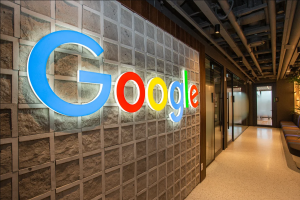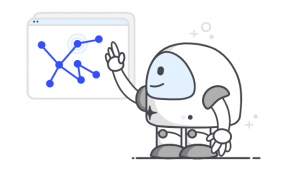Google Circle’s Rumors and Eventual Dismissal Stirs Thoughts about Privacy
![]() Over the weekend a rumor cropped up that Google would be releasing a new social-networking tool, Google Circles, at SXSW—but with the dawn today we quickly discovered that there is no Google Circles and probably will not be ever. The idea seems sweet enough, a network to manage our networks designed and published by the world’s largest organizer of Internet information. However, there are those who note that Google probably isn’t going to be the company to do something like this and if we look at their history, current and deep past, there’s a lot of reasons to think that they wouldn’t do something like Circles.
Over the weekend a rumor cropped up that Google would be releasing a new social-networking tool, Google Circles, at SXSW—but with the dawn today we quickly discovered that there is no Google Circles and probably will not be ever. The idea seems sweet enough, a network to manage our networks designed and published by the world’s largest organizer of Internet information. However, there are those who note that Google probably isn’t going to be the company to do something like this and if we look at their history, current and deep past, there’s a lot of reasons to think that they wouldn’t do something like Circles.
The rumors go down in flames
First things first: ReadWriteWeb right now is running an article about how the Google Circles rumor started and then eventually fell apart. It looks like numerous people thought that it might be a keen idea and a few different outlets grabbed onto the idea and ran with the speculation. All this, only to have it shot down by Google’s Chris Messina told ReadWriteWeb that he didn’t know what they were talking about when they asked yesterday, looking for the scoop.
“I wasn’t able to nail down Chris Messina this morning—he was too busy holding court at the Google Hacker event,” said Mark Hopkins, editor and chief of SiliconANGLE. “I was skeptical when I heard the rumor, but everyone on the ground (for some reason) was buying into it. I believe, based on conversations I’ve had with Messina and others, that we’ll never see another social network play along these lines. Pundits at Techcrunch, ReadWriteWeb and others continue to fall for this recurring rumor because they fundamentally misunderstand Google’s position of strength. They build infrastructure that grows the web, not social networks to compete with destination websites.”
So it’s unlikely that Google would step into this avenue; but that doesn’t change how important we as a society are seeing how we must regulate our public and private lives in the Internet age. Especially with everything we say and do essentially held up on a pedestal—as some have found when newspapers use their tweets against them. Social grouping before the Internet was all about withholding Information and choosing to be the gateway between groups about what parts of the world saw what mask.
How we see our separate social networks and push them apart (or bring them together)
The beginnings of the Internet opened up pretty much the same way. As much as everything was interconnected then, it was still easy to produce personas on different forums that didn’t connect back to one another. Work and play didn’t mix and sometimes different social groups were unaware of one another—now, it’s not so easy to do that.
As much as social networking sites like Facebook have begun to reflect our real lives—in becoming the cause and the resolution of conflicts—but it’s also collapsing the walls between all of our various social groups and making it difficult to keep them separate like many people used to do.
“Respecting user privacy, while allowing users to participate in multiple affinity groups, will ultimately create tighter, more closely knit networks,” according to Rob White, President and Founder of U For Life. “The idea of users sharing nuanced information with specific segments of people is an important concept in the natural evolution of social networking. Peer groups and larger organization networks alike will be empowered to foster deeper connections. Additionally, the marketing dynamic is changing rapidly. These niche networks of people and groups with specific, similar interests will also open the door for a new form of effective social marketing, allowing organizations to reach and engage niche audiences through direct, relevant marketing messages.”
We’ve got a lot of growing to do when it comes to general privacy, especially in an era where advertisers want to know everything about us so that they can sell things. Privacy issues with sites like Facebook, Twitter and others crop up from fearing hackers and the great unwashed masses seeing our stuff—like complaints over Facebook’s data management and the essential price of popularity in an information society—but we’re worried that our reputations will mix and how our “affinity groups” might affect one another and our position in those groups.
As social animals, some of us spend a lot of time cultivating our place in our spheres of influence and getting our hands on tools to get more control over what we present where and when we want.
A message from John Furrier, co-founder of SiliconANGLE:
Your vote of support is important to us and it helps us keep the content FREE.
One click below supports our mission to provide free, deep, and relevant content.
Join our community on YouTube
Join the community that includes more than 15,000 #CubeAlumni experts, including Amazon.com CEO Andy Jassy, Dell Technologies founder and CEO Michael Dell, Intel CEO Pat Gelsinger, and many more luminaries and experts.
THANK YOU













